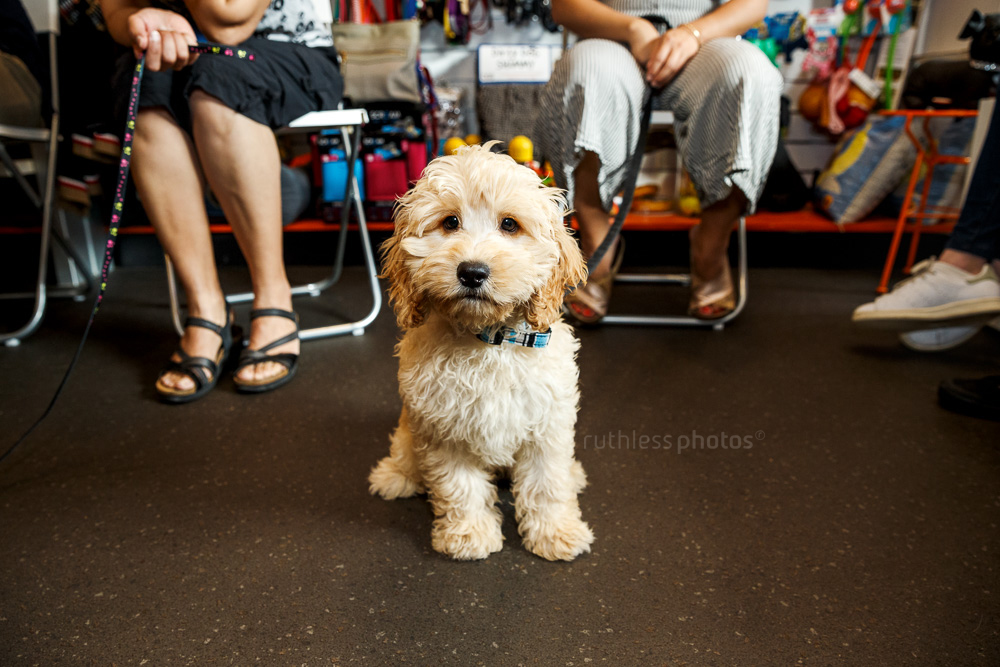
Puppy school is typically four weeks long, with one, hour long, class every seven days. It’s a very small time investment on the new puppy owner’s part and I can’t emphasise the importance strongly enough.
Having said that, not all puppy schools are created equally, so I’m going to help you navigate the minefield by telling you what to look for when doing your research. I’ll also give you my personal recommendations for the best puppy schools in Sydney and Canberra.
top 5 things to look for when choosing a puppy school
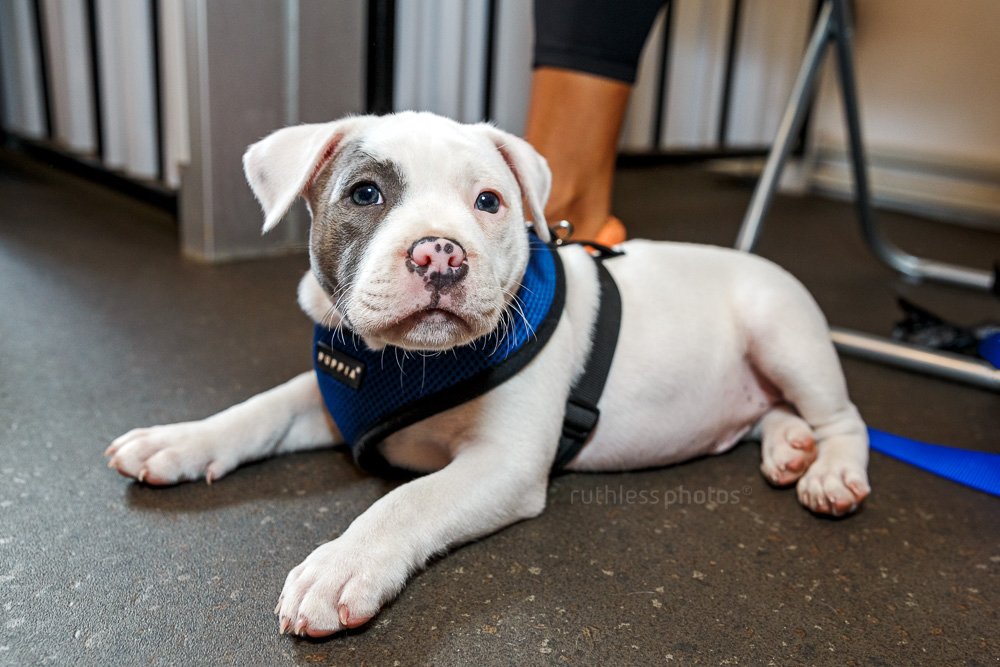
a qualified trainer and excellent course content
Make sure you select a course that’s taught by a qualified and experienced instructor. They should be knowledgeable about all kinds of breeds, puppy behaviour, suitable food, toys and
other equipment for your puppy. Their qualifications will be stated on their website.
The best puppy school courses will cover general puppy know-how and handling, development stages and expected behaviour, basic obedience skills, how to read body language, toilet training and socialisation.
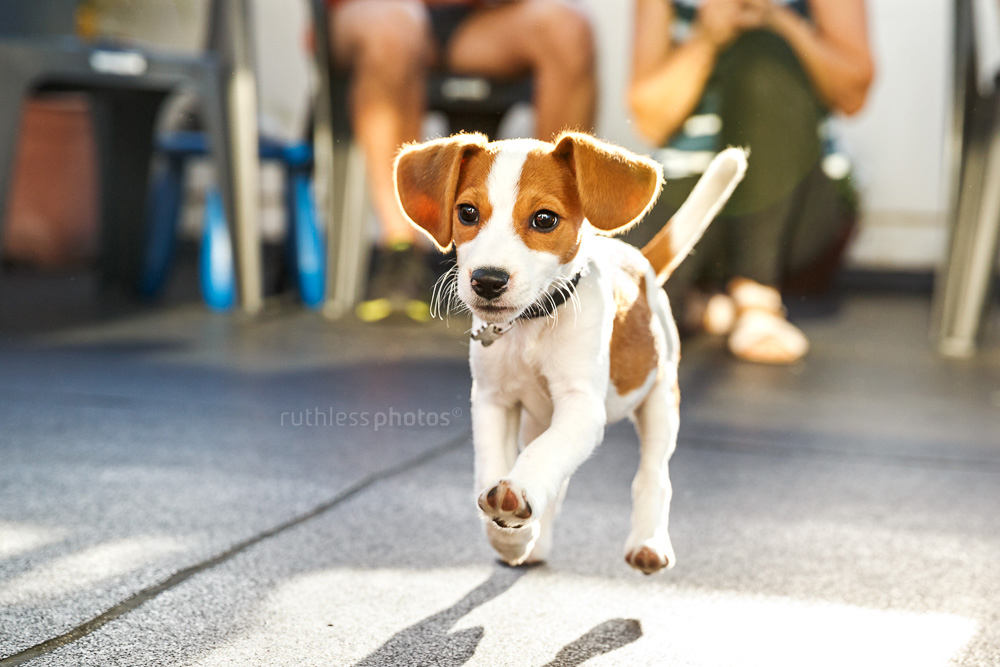
small class sizes in a safe environment
Small class sizes are important so the teacher will have plenty of time to give each student and puppy individual attention. It also ensures that the less confident puppies don’t get too overwhelmed. Puppies can vary in breed and size but all should be in the same age range of 8-16wks. As younger puppies won’t have had all their vaccinations yet it’s vital that the class is run in a clean and sterile environment (not at a dog park). Double gates or doors at points of entry/exit are preferable, should your puppy get spooked for any reason and try to run away.
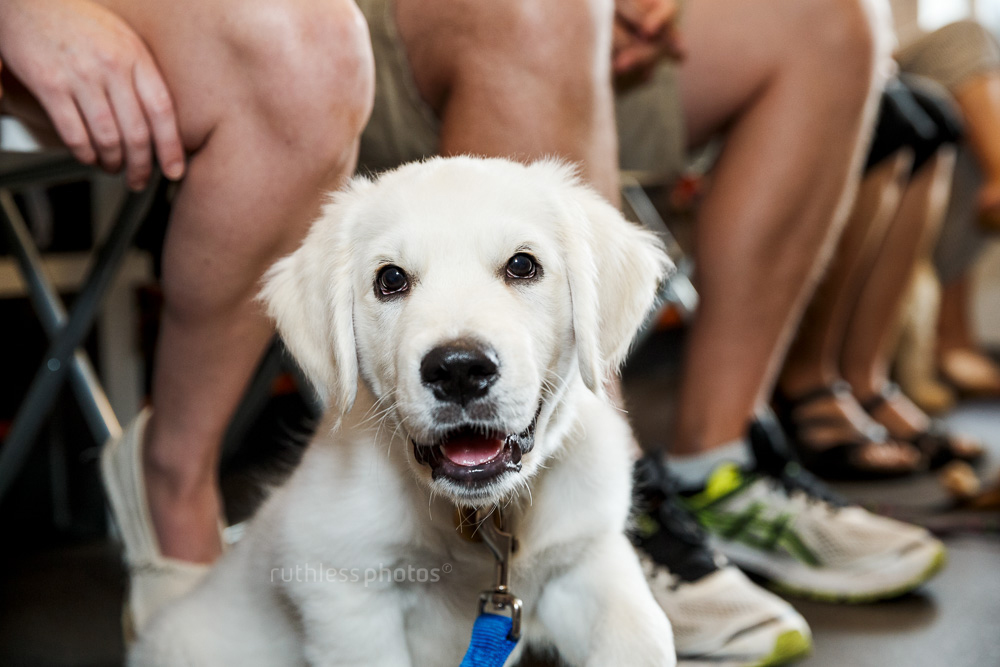
a calm and ordered class
The best puppy schools aren’t an off-lead free for all! The instructors use exercises that teach the puppy how to cope with frustrations and ultimately learn to be calm. Any off-lead play is carefully managed and supervised with just two puppies playing at one time and under no circumstances will any bullying or inappropriate play be allowed to take place.
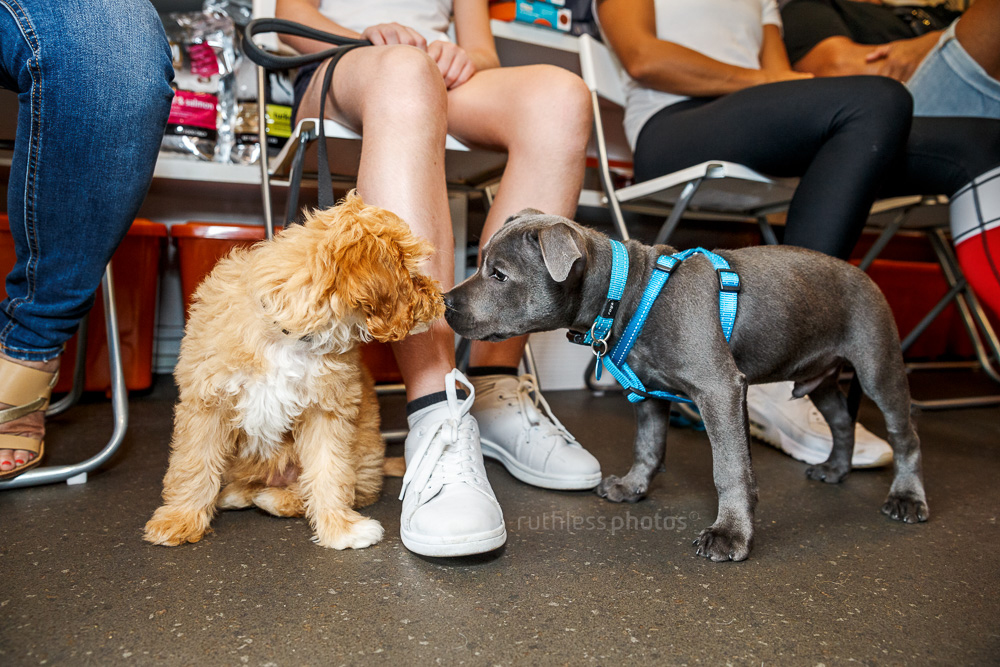
appropriate puppy socialisation is explained
There are two very common misconceptions with regards to puppy socialisation:
- Your new puppy can’t be taken anywhere until they’ve had their their final vaccination; and
- Puppies need to meet lots of other dogs in order to be well socialised.
Dog parks and doggy daycare are an absolute no-no for baby puppies that are still in their fear period. It can take just one inappropriate interaction at that age to ruin a puppy for life and create a fearful and/or aggressive dog.
When trainers refer to socialisation they mean your puppy should be safely introduced to as many sights, sounds, surfaces and environments as possible during their critical period. A great puppy school will have fun games for you and your puppy that will build their confidence and help overcome any fears that may be developing.
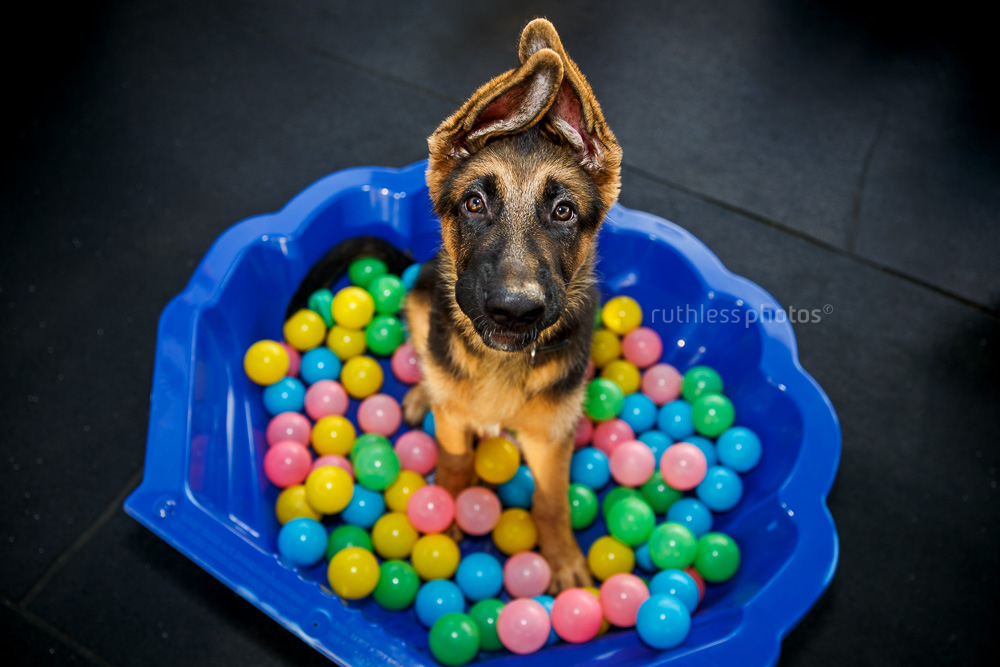
training is not a one-size-fits all approach
A good puppy school will give you the tools to continue to raise a happy, healthy and well-rounded dog. They don’t ban important social games such as tug of war but will show you how it is done correctly. The instructor will teach you valuable exercises and enrichment ideas that are appropriate for your dog – based on their breed, temperament and size. They will also advise on the safest and most effective equipment to use. All dogs are different so the solutions should be tailored to suit on a case-by-case basis.
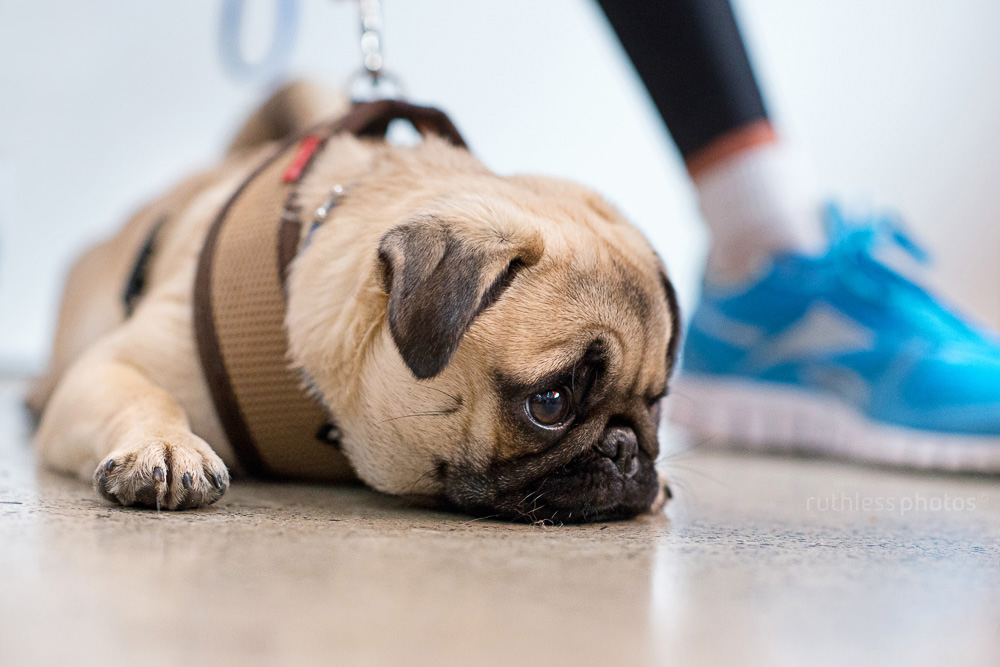
The best puppy schools in Sydney and Canberra
The best puppy schools in Sydney and Canberra, in my opinion, are as follows:
Take a lead
Eastern Suburbs, Potts Point and Inner West locations
Call: 0424 209 242
Email: aggy@takealead.com.au
K9Fun
Eastern Suburbs, Randwick and Inner West locations
Call: 0424 293 692
Email: Kerstin@k9fun.com.au
Pups4Fun
Canberra
Call: 02 6287 3955



